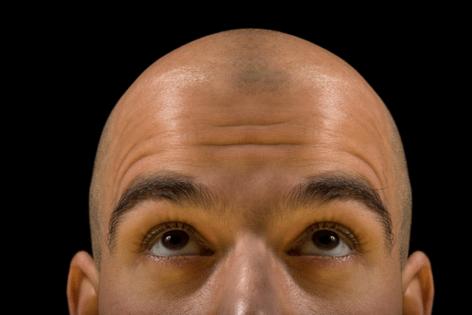What you eat and drink can contribute to your hair loss
Published in Health & Fitness
It may not be age that is making your hair thin or fall out, but rather what you are eating and drinking.
New research shows certain foods contribute to hair loss, and others help with hair growth.
Sugar-sweetened beverages and alcoholic drinks are associated with a higher risk of hair loss, according to research published in Nutrition and Health, which analyzed 17 studies on diet and hair.
“When we consume high amounts of sugar, we get an insulin spike that promotes inflammation and can distort the natural hair growth cycles,” explains Laura Acosta, a registered dietitian and associate professor of Food Science and Human Nutrition at the University of Florida. “With alcohol, it’s not that it necessarily directly causes hair shedding itself, but it does contribute to nutrient deficiency, nutrient malabsorption, liver stress, poor sleep, and systemic inflammation — all of which can wreak havoc on hair growth.”
Not consuming enough protein also can lead to hair loss. Acosta says a person needs to take in half a gram of protein per pound of body weight each day.
“We tend to be more protein-deficient than we think,” said Dr. Jila Senemar, a Miami menopause specialist who says hair shedding, hormones, and diet are all interrelated.
Foods that can help with healthy hair and hair growth include soy-based nourishment like edamame or tofu, and cruciferous veggies like broccoli or cauliflower, which can reduce the risk of hair loss. Nutritionists believe this is likely due to the antioxidant and anti-inflammatory properties of their phytochemicals, such as isoflavones and carotenoids. Additionally, persimmon leaf has been studied and found to be linked to improvements in both hair density and thickness. Persimmon leaf contains antioxidants like quercetin that improve blood flow to the scalp. You can drink it in tea or take an oral supplement.
While most studies in this new review primarily included women, one study involving 76 men with male pattern baldness found greater hair growth in a group that consumed 400 mg of pumpkin seed oil for 24 weeks compared to a placebo group. Researchers believe the reason for the hair growth may be hormonal — pumpkin seed oil may decrease dihydrotestosterone (DHT), a hormone known to affect hair follicles and cause hair thinning.
When it comes to supplements, Vitamin D has been the most studied. At least five studies analyzed in this review found that higher vitamin D levels may be protective against hair loss. Acosta said 2,000 international units (IUs) would be a good dose to aim for, noting there is risk for toxicity if someone takes too much.
Another supplement to consider is iron. One study showed that iron supplementation (in the form of 100-milligram tablets) improved hair growth in women. Senemar, the Miami doctor, said if someone is iron-deficient and wants to take supplements, she suggests taking them with vitamin C, which can help increase iron absorption. She points out that certain foods are good sources of iron, including spinach, lentils and almonds.
Acosta recommends having your iron levels tested along with your zinc and biotin (Vitamin B7) levels because deficiencies can cause hair loss or thinning. Adults need 30 micrograms of biotin daily. It can be found in foods like meats, eggs, fish, seeds, nuts and vegetables like sweet potatoes.
“If you’re not biotin deficient, though, taking biotin supplements is unlikely to help your hair,” Acosta said.
Recently, research has been focused on collagen for hair growth. “There is some exciting research going on around collagen supplements that a few years ago I probably would have dismissed, but now it really has my attention,” she said.
For the newly published review, researchers scoured three big scientific databases — PubMed, Web of Science, and Scopus — using keywords like “dietary intake,” “nutritional status,” and “hair growth.” In total, the studies involved 613,320 individuals, mostly females, ranging in age from 7 to 77 years old.
“These were observational studies, meaning that we see associations, but we can’t necessarily prove causation from these types of studies,” Acosta explained.
©2025 South Florida Sun Sentinel. Visit at sun-sentinel.com. Distributed by Tribune Content Agency, LLC.










Comments